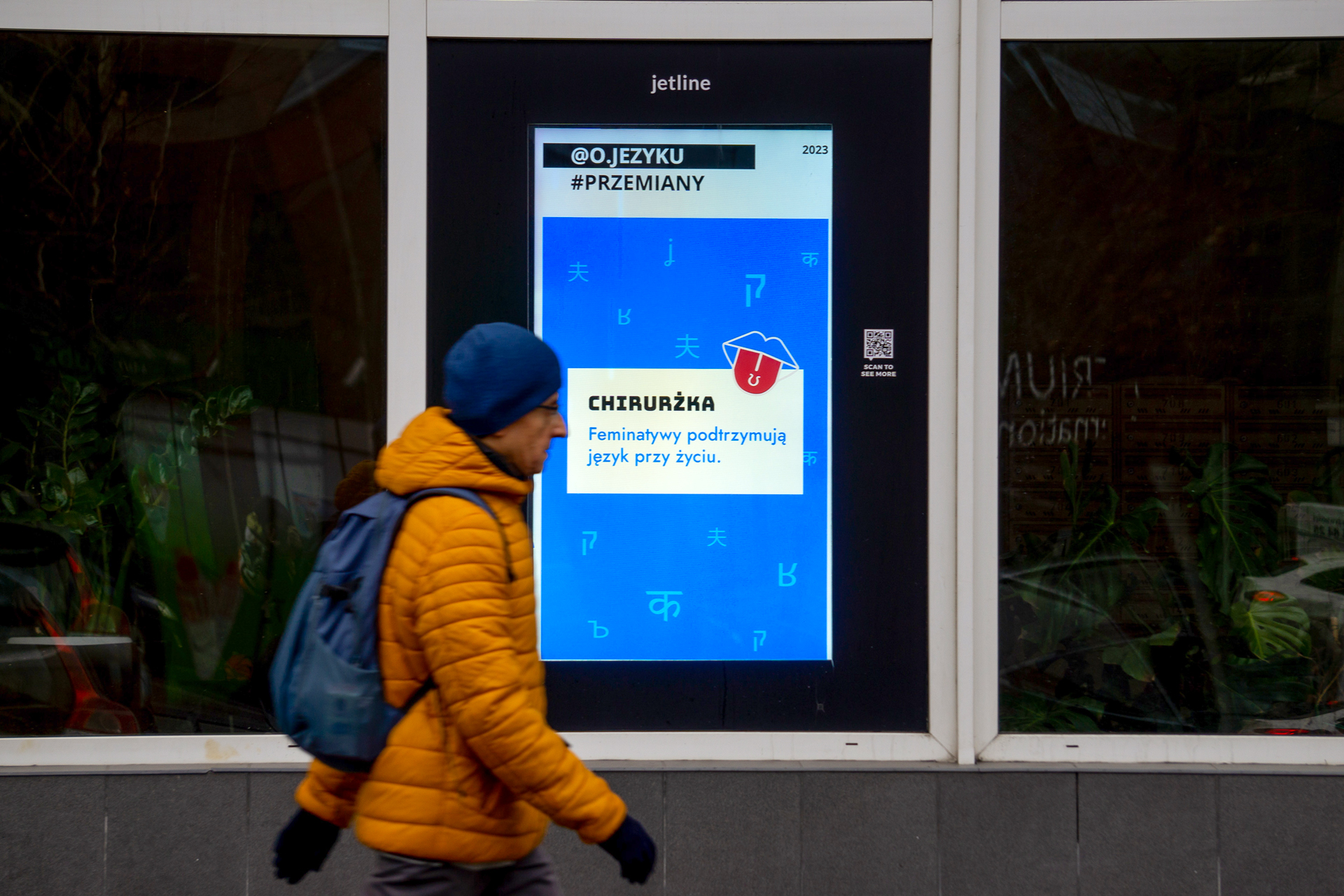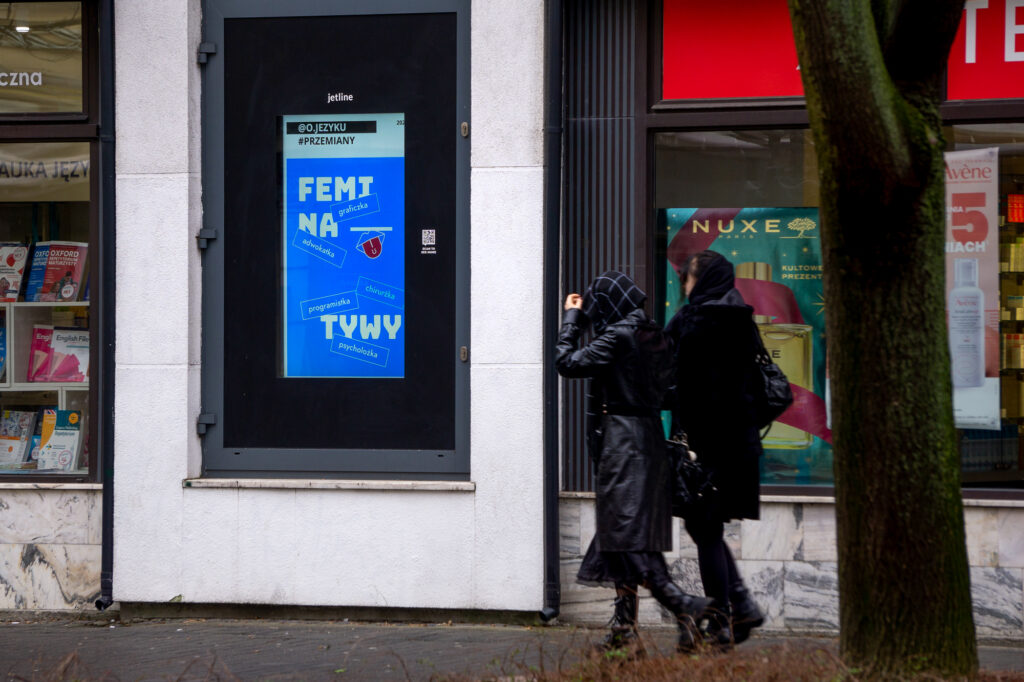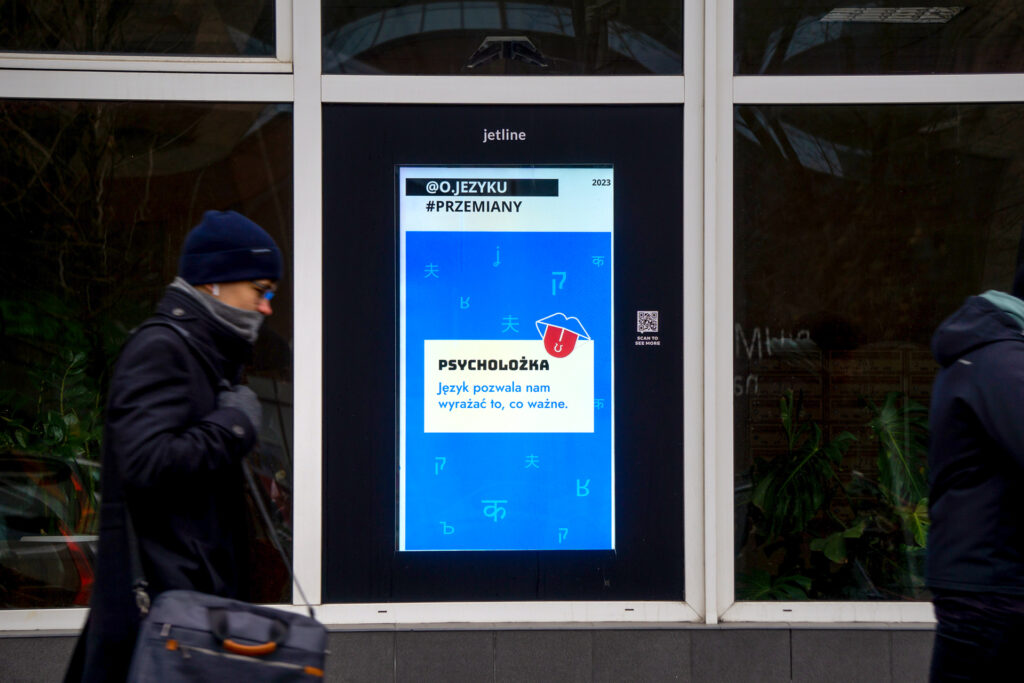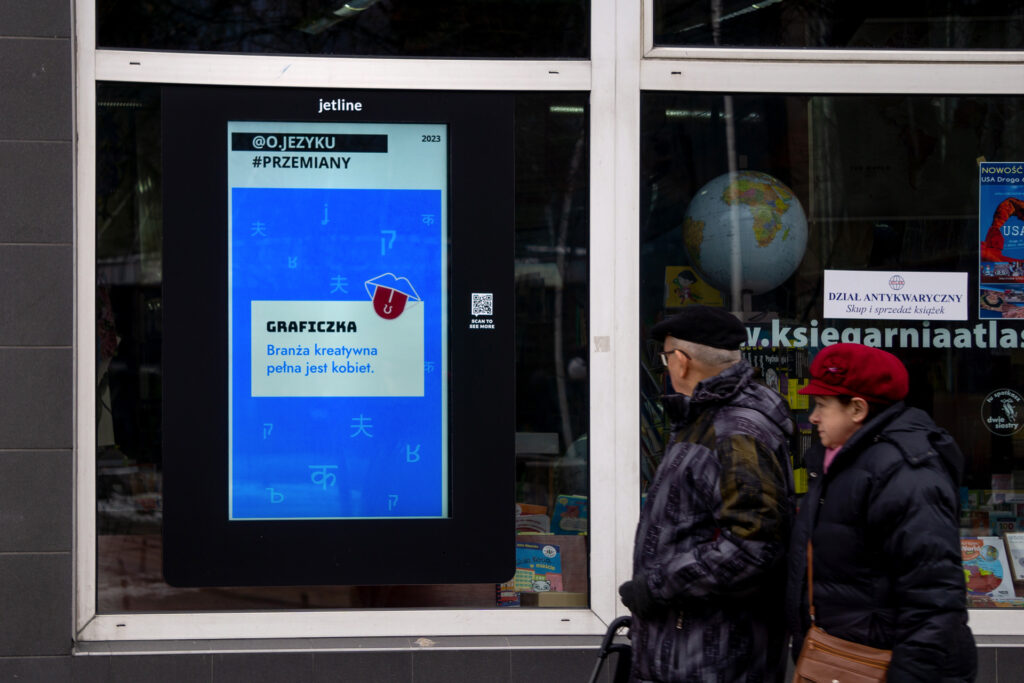Feminatives on MORE Screens
Feminatives - Collaboration with O Języku as Part of the Przemiany Series.
Feminatives have been and are natural in the language. They are simply feminine forms of job titles and designations. They help convey the message precisely.
According to the Polish Language Council (2012),
feminine forms of job titles and designations are systematically permissible. If they are not yet commonly used for most job titles and designations, it is because they evoke negative reactions from most Polish speakers.
This, of course, can be changed if we consider that the feminine forms of the aforementioned names are adequate, and their use may no longer express an attitude towards gender equality, but simply clarify the message. Therefore, normalization and popularization are needed.
So We Decided to Use the Effectiveness of Out-Of-Home Advertising and our Digital MORE Screens.
Feminatives - History
They are Nothing New
Feminatives have been used in Poland for over 100 years, when women more frequently appeared in public life and gained more rights.
Back then, they were not controversial. What's more, it was the use of masculine endings to refer to women that caused greater outrage in the public sphere.
What has changed, what happened?
PRL, the withdrawal of feminatives, and the language of propaganda. At that time, in the name of “equality”, attempts were made to strip professions of gender. However, because a grammatically neuter version of a profession is impossible, it was adopted that the permanent, obligatory form would be masculine.
Today's reluctance towards these feminine forms stems mainly from ignorance and habits.
How is it that 'fryzjerka' (female hairdresser), 'sprzedawczyni' (saleswoman), 'księgowa' (female accountant) do not raise objections, while 'adwokatka' (female lawyer), 'chirurżka' (female surgeon), 'premierka' (female prime minister) do? It seems that it's just a matter of getting used to them and using them so they become natural - just like those that are already freely functioning.
Language shapes reality and self-awareness. It is a social construct, it lives and constantly undergoes transformations. Word formation is a manifestation of its vitality and creativity. The morphological and phonological process of feminatives is typical for the Polish language. Therefore, there are no purely linguistic arguments that would speak against their use.
On MORE Screens, We Present Selected Feminatives, Prepared in Cooperation with Portal O Języku:
FEMALE PROGRAMMER
All professions can be for women.
FEMALE ENGINEER
STEM fields and technical professions are for everyone.
FEMALE CHAMPION
It's time to recognize the achievements of outstanding women.
FEMALE PSYCHOLOGIST
Language allows us to express what is important.
FEMALE LAWYER
Women also want and can represent themselves.
FEMALE GRAPHIC DESIGNER
The creative industry is full of women.
FEMALE GUEST
It's time for women to feel invited too.
FEMALE SCIENTIST
Science owes a lot to women.
FEMALE ARCHITECT
Feminatives are formed according to the Polish language system.
FEMALE PRIME MINISTER
Women can also hold power.
FEMALE SURGEON
Feminatives keep the language alive.
Feminist Education in Public Space
Every format and every communication channel has its own specific rules. Out-of-home advertising cannot be turned off. It is in places where people are and works where it is needed. It doesn't confine itself to online groups; it breaks out of communication bubbles. Thanks to this, it perfectly complements the Internet, creating a synergy effect. As in this campaign - our activities were complemented by Portal o Języku, and we increased their visibility to reach new audiences for them.
Outdoor advertising attracts attention not only with its appearance and idea, but also surprises recipients: content that was previously only online can also be found on the street.
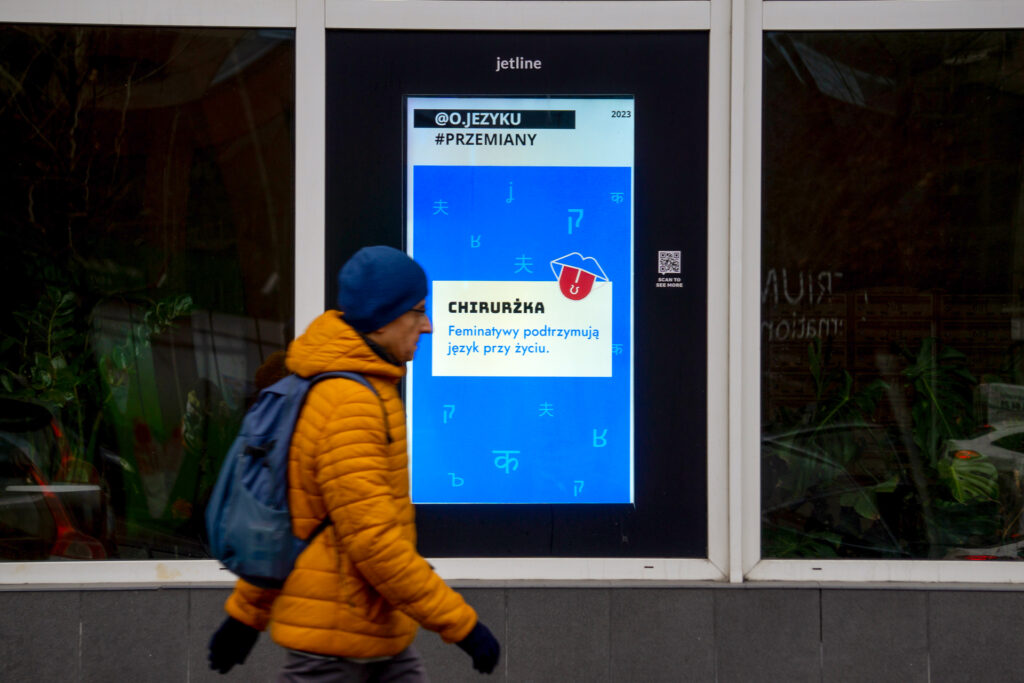
We invite you to our partner Portal o języku (@o.jezyku) • , where Marysia Bolek and Paweł Chról create a space for free reflection on language.

